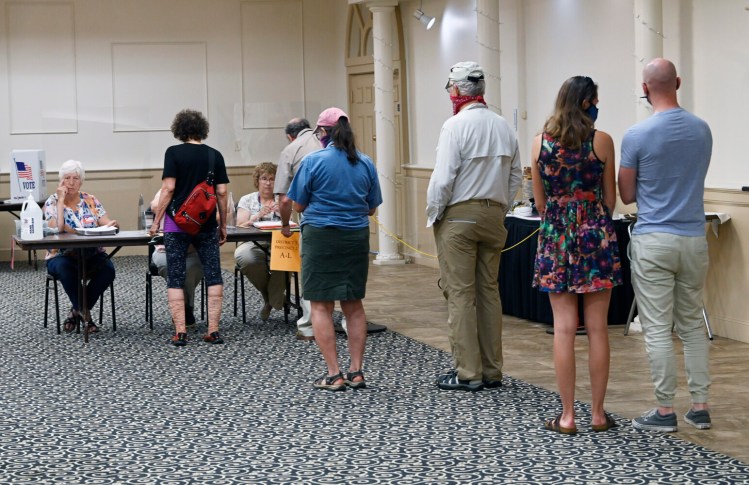Polling places across Maine open Tuesday morning as voters decide to approve or reject local school budgets and, in some communities, choose office holders or decide whether to adopt new ordinances.
Polls open at 8 a.m. in most communities, although some open earlier. All polls close at 8 p.m. statewide.
Turnout is expected to be low in many cities and towns, where the only item on the ballot is the school budget validation referendum.
Falmouth, Cumberland, North Yarmouth, Kennebunk and Kittery are among the southern Maine communities also filling seats on town councils, select boards and school boards. And voters in Hollis and South Berwick are deciding on rules for marijuana businesses.
Portland is expecting a larger turnout than most – although nothing like a November election – because of a contentious race for seats on the city’s new Charter Commission, as well as a school budget proposal that has drawn some public opposition.
Portland voters are choosing nine residents to review the city’s charter and recommend changes that could alter its basic government structure, including the roles of the mayor and city manager and the makeup of the City Council.
Winners of the seats will spend the next year reviewing the structure of city government and forming recommendations that could go before voters in 2022. A citywide referendum would be needed to change the charter.
While a charter commission election might otherwise be a low-key affair, a convergence of political forces, including impacts of the pandemic and demands for racial equity, has focused energy and attention on the commission and the potential for historic reforms.
Charter commission members could recommend sweeping changes, including eliminating the city manager position and replacing it with a strong executive mayor, extending voting rights in municipal elections to noncitizens, increasing representation on the City Council, increasing the pay of councilors, increasing citizen oversight over the police department and possibly establishing a public advocate office.
The energy around the election has led to a profusion of lawn signs around town and significant campaign spending, including by a political action committee that favors a strong mayor and other reforms. The group, People First Charter, drew widespread criticism for its negative tactics – including from candidates it endorsed.
There are four at-large seats on the charter commission that will be filled by voters citywide. Additionally, one member will be elected by voters in each the city’s five City Council districts. All races with more than two candidates will be decided through ranked-choice voting.
Portland residents also will consider approving a $125.2 million school budget that includes close to $3 million in new investments for equity-focused initiatives.
The budget, which gained 7-1 approval from the school board and 7-2 approval from the City Council, is up $5.3 million, or 4.4 percent, from the current budget and includes a 5.5 percent increase in the school portion of the tax rate.
The school budget has encountered some pushback this year, including from some city councilors who called on the district to use federal coronavirus relief funds rather than local taxpayer dollars to fund the new investments. School officials, however, said that approach is not sustainable and would only lead to a funding gap in the future when federal funds are no longer available.
Send questions/comments to the editors.



Comments are no longer available on this story